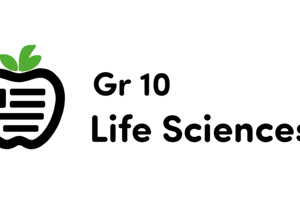Podcast
Questions and Answers
What is the function of the cardiovascular system?
What is the function of the cardiovascular system?
- Transporting lymph between the heart and tissues
- Returning excess tissue fluid to the cardiovascular system
- Carrying oxygenated blood from the heart to the body (correct)
- Transporting blood between the heart and lungs
Which type of vessel carries blood from the heart to the tissues?
Which type of vessel carries blood from the heart to the tissues?
- Veins
- Capillaries
- Arteries (correct)
- Lymphatic vessels
Where does the exchange of substances between blood and tissues take place?
Where does the exchange of substances between blood and tissues take place?
- Veins
- Arteries
- Lymphatic vessels
- Capillaries (correct)
What is the main function of the lymphatic system?
What is the main function of the lymphatic system?
What does the pulmonary circuit do?
What does the pulmonary circuit do?
How many cavities does the heart consist of?
How many cavities does the heart consist of?
What is the outermost layer of the heart wall called?
What is the outermost layer of the heart wall called?
Which type of vessel carries blood from the heart to the capillaries at high pressure?
Which type of vessel carries blood from the heart to the capillaries at high pressure?
Which vessel type has the thickest layer of smooth muscle and elastic fibers?
Which vessel type has the thickest layer of smooth muscle and elastic fibers?
Where do veins start from as they gradually form larger vessels on their way back to the heart?
Where do veins start from as they gradually form larger vessels on their way back to the heart?
What is the smallest vessel that arises from arterioles and ends in venules?
What is the smallest vessel that arises from arterioles and ends in venules?
Where does the lymphatic duct that collects lymph from the rest of the body end?
Where does the lymphatic duct that collects lymph from the rest of the body end?
Which system of vessels collects excess tissue fluid and returns it to the cardiovascular system?
Which system of vessels collects excess tissue fluid and returns it to the cardiovascular system?
What is responsible for filtering the lymph in the lymphatic circulation?
What is responsible for filtering the lymph in the lymphatic circulation?
Where does the impulse from the sinusal node first propagate through the walls of the atria?
Where does the impulse from the sinusal node first propagate through the walls of the atria?
What is formed by connective tissue and a simple flat epithelium, next to it is the pericardial cavity filled with fluid?
What is formed by connective tissue and a simple flat epithelium, next to it is the pericardial cavity filled with fluid?
Where is the natural pacemaker of the heart located?
Where is the natural pacemaker of the heart located?
In which vessel type do endothelial cells have occlusive unions that do not leave spaces between them?
In which vessel type do endothelial cells have occlusive unions that do not leave spaces between them?
Study Notes
Cardiovascular System
- The cardiovascular system is responsible for transporting oxygen and nutrients to tissues and removing waste products.
Blood Flow
- Arteries carry blood from the heart to the tissues.
- Exchange of substances between blood and tissues takes place in capillaries.
- Pulmonary circuit is responsible for transporting deoxygenated blood from the heart to the lungs and oxygenated blood from the lungs to the heart.
Heart Structure
- The heart consists of four cavities.
- The outermost layer of the heart wall is called the epicardium.
Vessel Types
- Arteries carry blood from the heart to capillaries at high pressure.
- Arteries have the thickest layer of smooth muscle and elastic fibers.
- Veins start from venules and gradually form larger vessels on their way back to the heart.
- Capillaries are the smallest vessels that arise from arterioles and end in venules.
Lymphatic System
- The main function of the lymphatic system is to collect excess tissue fluid and return it to the cardiovascular system.
- The lymphatic system filters the lymph through lymph nodes.
- The lymphatic duct that collects lymph from the rest of the body ends in the subclavian vein.
Heart Function
- The natural pacemaker of the heart is located in the sinusal node.
- The impulse from the sinusal node first propagates through the walls of the atria.
- The pericardium is formed by connective tissue and a simple flat epithelium, and is next to the pericardial cavity filled with fluid.
Vessel Characteristics
- In arterioles, endothelial cells have occlusive unions that do not leave spaces between them.
Studying That Suits You
Use AI to generate personalized quizzes and flashcards to suit your learning preferences.
Related Documents
Description
Test your knowledge about the components and functions of the circulatory system, including the cardiovascular system and the lymphatic system. Learn about the blood vessels, heart functions, and the transportation of blood and lymph in the human body.




